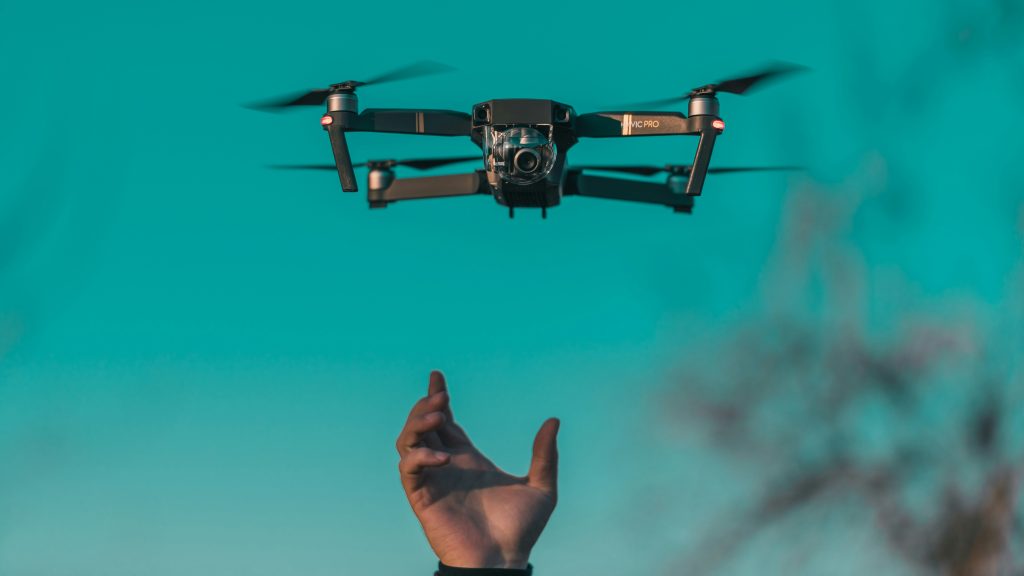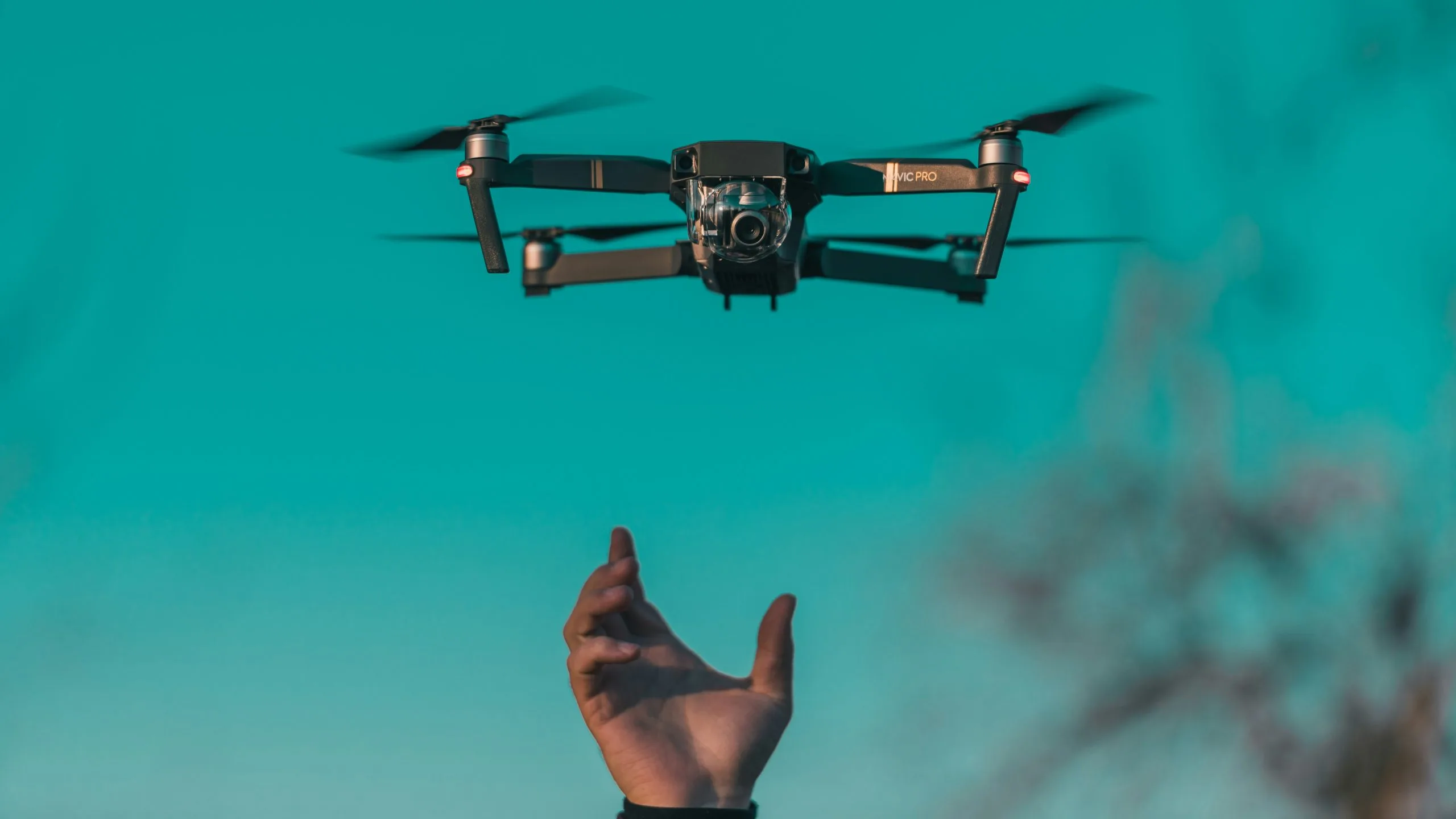How to Land Your First Drone Pilot Job: 6 Great Tips Leave a comment
The use of drones in various industries has led to a surge in demand for skilled drone pilots. With applications ranging from agriculture to filmmaking, drone pilot jobs offer exciting opportunities for those with a passion for aviation and technology. The versatility of drones has made them indispensable tools in industries such as agriculture, construction, logistics, and filmmaking, where they are used for tasks ranging from crop monitoring to aerial photography. As a result, the demand for skilled drone pilots who can operate these devices safely and efficiently has never been higher.
Drone Pilot Training: The Path to Certification
Becoming a drone pilot in India requires specialized training and certification. The Directorate General of Civil Aviation (DGCA) has established guidelines for the training, including the requirement to undergo training from DGCA-approved training organizations. These training programs cover a wide range of topics, including drone operations, flight planning, air law, and safety procedures. In addition to theoretical knowledge, aspiring pilots must also undergo practical training to develop their flying skills and gain hands-on experience with different types of drones.
Obtaining a Drone Pilot Certificate
To operate drones legally in India, pilots must obtain a Remote Pilot License (RPL) from the DGCA. This certificate is essential for demonstrating the pilot’s knowledge and proficiency in operating drones safely and responsibly. To obtain an RPL, pilots must pass a written exam administered by the DGCA and demonstrate their flying skills in a practical test. Once certified, drone pilots are required to adhere to the DGCA’s regulations regarding drone operations, including maintaining a minimum distance from people, buildings, and other aircraft.
The Future of Drone Pilot Jobs in India
Despite regulatory challenges, the future looks promising for drone pilots in India. As technology continues to advance and drones become more integrated into various industries, the demand for skilled drone pilots is expected to increase. In addition to traditional sectors such as agriculture and construction, emerging industries such as e-commerce and drone delivery are also expected to create new opportunities for them. With the right training and certification, aspiring drone pilots can position themselves for a successful and fulfilling career in this exciting field.

The Role of Drone Pilots in Innovation and Development
Drone pilots play a crucial role in driving innovation and development across various industries in India. In agriculture, they are helping farmers adopt precision farming techniques by providing them with real-time data on crop health, soil moisture levels, and pest infestations. This information allows farmers to make informed decisions about irrigation, fertilization, and pest control, ultimately leading to higher crop yields and more sustainable farming practices. In the construction industry, they are using drones to create detailed 3D models of construction sites, helping project managers plan and monitor construction projects more effectively. This not only improves the efficiency of construction projects but also enhances safety by reducing the need for workers to access high-risk areas.
In the logistics sector, they are exploring new ways to improve last-mile delivery by using drones to deliver packages to remote or hard-to-reach areas. This could revolutionize the way goods are transported, especially in regions with limited infrastructure. In the film and media industry, they are capturing stunning aerial footage that adds a new dimension to filmmaking. By working closely with directors and cinematographers, they are helping create visually compelling stories that engage audiences in new and exciting ways.
Overall, the future looks bright for drone pilots in India. As technology continues to advance and drones become more integrated into various industries, the demand for skilled pilots is expected to grow. By staying abreast of the latest developments in drone technology and regulatory requirements, they can position themselves for a successful and fulfilling career in this dynamic and fast-growing field.
Challenges and Opportunities for Drone Pilots in India
While the future of drone pilots in India looks promising, there are several challenges that they may face in the coming years. One of the main challenges is the need for continued regulatory compliance. The DGCA’s regulations regarding drone operations are constantly evolving, and they will need to stay updated with these changes to ensure that they are operating legally. This includes obtaining any new certifications or licenses that may be required and adhering to any new operational guidelines.
Another challenge for them is the potential for job displacement due to automation. As drones become more advanced, there is a possibility that some tasks currently performed by drone pilots could be automated, leading to a decrease in demand for human drone operators. However, this also presents an opportunity for drone pilots to upskill and specialize in areas where human intervention is still required, such as complex flight missions or data analysis.
Despite these challenges, there are also several opportunities for them in India. One such opportunity is the potential for entrepreneurship. As the demand for drone services grows, there is an increasing need for drone pilots to start their own businesses and offer specialized services to clients. This could include aerial photography, surveying, mapping, and more. Additionally, drone pilots they could also find opportunities in research and development, working with companies to develop new drone technologies and applications.
The Importance of Continued Learning and Development
To succeed in the field of drone piloting, it is essential for them to prioritize continued learning and development. This includes staying updated with the latest advancements in drone technology, as well as honing their skills through practical experience. By continuously improving their skills and knowledge, drone pilots can ensure that they remain competitive in the industry and are able to take advantage of new opportunities as they arise.
One way for them to continue learning is by participating in workshops, seminars, and training programs offered by industry experts and organizations. These programs can provide valuable insights into new technologies and best practices, as well as offer networking opportunities with other professionals in the field. Additionally, drone pilots can also consider pursuing advanced certifications or licenses to specialize in specific areas of drone operations, such as aerial mapping or thermal imaging.
Overall, the future looks bright for drone pilots in India. With the right skills, knowledge, and mindset, drone pilots can take advantage of the growing demand for drone services and build a successful and fulfilling career in this exciting field.
Conclusion
Drone pilot jobs in India offer a unique opportunity to be at the forefront of a rapidly evolving industry. With the right training and certification, aspiring drone pilots can embark on a rewarding career that combines their love for aviation with the excitement of working with cutting-edge technology. As drones continue to revolutionize industries and change the way we work, the role of the drone pilot will become increasingly important, making it an exciting time to pursue a career in this field.
